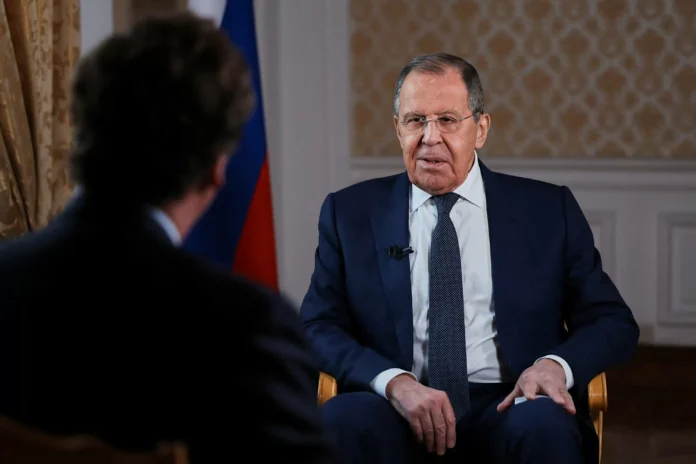Russian Foreign Minister Sergey Lavrov has recently made a statement that has caught the attention of the international community. In an interview aired late Thursday, Lavrov expressed his hopes that the West will take note of Russia’s recent test of the Oreshnik intermediate-range ballistic missile and understand the message it sends.
The Oreshnik missile, which was successfully launched from the Kapustin Yar testing range in southern Russia, has a range of 2,000 kilometers and is capable of carrying both conventional and nuclear warheads. This test comes at a time of heightened tensions between Russia and the West, particularly with regards to the Intermediate-Range Nuclear Forces (INF) Treaty.
Lavrov emphasized that the test was not a response to the recent withdrawal of the United States from the INF Treaty, but rather a signal to the West that Russia is capable of defending itself and its interests. He stated, “We are not trying to provoke anyone, but we do hope that our Western partners will take our signal into account and draw the necessary conclusions.”
The INF Treaty, signed by the United States and the Soviet Union in 1987, banned the development, production, and deployment of ground-launched ballistic and cruise missiles with ranges between 500 and 5,500 kilometers. However, the US has accused Russia of violating the treaty by developing and deploying the 9M729 missile, which it claims has a range that exceeds the treaty’s limit.
Russia has consistently denied these accusations and has accused the US of violating the treaty by deploying missile defense systems in Europe that could potentially be used to launch offensive missiles. Despite efforts to resolve these issues, the US officially withdrew from the treaty on August 2, 2019.
In his interview, Lavrov reiterated Russia’s commitment to the INF Treaty and stated that the US withdrawal has “seriously undermined the global security architecture.” He also expressed concern that the US may now use the absence of the treaty as an excuse to deploy intermediate-range missiles in Europe, which would pose a direct threat to Russia.
The successful test of the Oreshnik missile serves as a reminder to the West that Russia is not backing down in the face of these challenges. Lavrov’s statement also highlights Russia’s desire for open and honest dialogue with its Western partners. He stated, “We are ready for a constructive dialogue with the United States on all issues, including arms control, but only on the basis of equality and mutual respect.”
It is important for the West to take note of Russia’s message and understand that Russia is not seeking confrontation, but rather seeking to protect its national security interests. The successful test of the Oreshnik missile is a testament to Russia’s technological capabilities and its determination to defend itself.
Furthermore, Lavrov’s statement should serve as a reminder to the West that Russia is a key player in international affairs and its opinions and concerns should not be ignored. The recent test of the Oreshnik missile is a clear indication that Russia will not be pushed around or bullied by the West.
In conclusion, Russian Foreign Minister Sergey Lavrov’s statement regarding the recent test of the Oreshnik missile should be taken seriously by the West. It is a signal that Russia is not afraid to defend itself and its interests, and that it is ready for open and honest dialogue with its Western partners. It is time for the West to listen to Russia’s concerns and work towards finding mutually beneficial solutions to global issues. Let us hope that the West heeds Lavrov’s words and takes the necessary steps towards a more stable and secure world.


